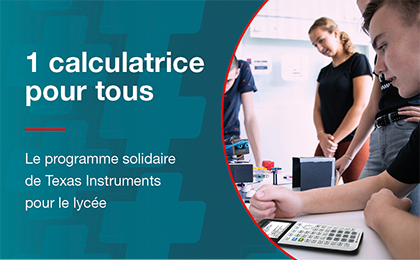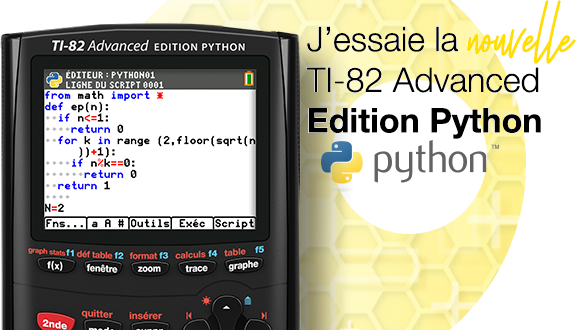Salut à tous,
Cela fait quelques temps que l'on a pas organisé de concours, et voici donc ce manque comblé
Nous organisons donc un concours, d'environ 5 semaines, mêlant bien l'algorithmie à l'arithmétique.
Introduction:
En mathématiques, un nombre premier palindrome est un nombre qui est à la fois premier et palindrome.
Un nombre premier est un entier naturel qui admet exactement deux diviseurs distincts entiers et positifs (qui sont alors 1 et lui-même).
Cette définition exclut 1, qui n'a qu'un seul diviseur entier positif ; elle exclut aussi 0, qui est divisible par tous les entiers positifs.
Par exemple 6 = 2 × 3 n’est pas premier et 21 = 3 × 7 ou 7 × 3 non plus. Mais 11 est premier car 1 et 11 sont les seuls diviseurs de 11.
Les nombres premiers sont donc dans l’ordre 2, 3, 5, 7, 11...
Un nombre palindrome est un nombre dont l’écriture (ici en base 10) se lit de la même façon de gauche à droite et de droite à gauche.
Par exemple, tous les nombres de un chiffre sont palindromes: 0, 1, 2, 3, 4, 5, 6, 7, 8 et 9.
Les palindromes de deux chiffres sont: 11, 22, 33, 44, 55, 66, 77, 88 et 99.
101 est un nombre palindrome à trois chiffres.
Les nombres premiers palindromes sont donc: 2, 3, 5, 7, 11, 101, 131...
Sujet :
Créer un programme le plus rapide possible pour trouver le n-ième nombre premier palindrome.
Plateforme :
Le candidat pourra réaliser sa participation sur, au choix:
Catégories:
La production du candidat concourrera dans l’une des catégories suivantes :
Langages :
Contraintes :
Sur TI-82Stats/83/84/76, le programme principal récupérera n dans la variable dernière réponse, et renverra le nième nombre premier palindrome en résultat utilisable dans les calculs suivants.
Par exemple pour obtenir le 42ème premier, on pourra taper:
Ce nombre devra être utilisable pour les calculs suivants (variable dernière réponse).
Sur TI-Nspire, le programme principal prendre la forme d’une fonction prenant un paramètre n et renvoyant le résultat. Par exemple, palprem(42) devra renvoyer le nombre 18181.
Le candidat ne doit pas utiliser de listes de nombres pré-calculés dans son algorithme, sous peine de disqualification directe.
Il est par ailleurs interdit d'utiliser des fonctions du genre isPrime() qui permettraient d'obtenir directement une réponse quant à une partie de l'énoncé, non seulement ça détruit l'intérêt du côté réflexion algorithmique, mais ce serait injuste pour ceux qui n'auraient pas cette fonction, entre autre...
D'autre part, votre programme se doit de fonctionner sans avoir besoin de calcul formel (pour les Nspire : il doit marcher sur les non-CAS).
Notation :
La note finale sera sur 20 points, et le barème est le suivant :
Jury :
Les participations sont notées, de façon équitable selon un barème commun, par un jury dont la composition est la suivante :
Quand ? :
Le concours commence le Lundi 1er Avril 2013 et se termine le Dimanche 12 Mai à 23h59
Comment ? :
Pour participer, le candidat doit envoyer à l'adresse électronique info@tiplanet.org un e-mail avec:
Lots :
Grâce à notre partenariat avec TI-France et Jarrety, les gagnants de ce concours (un gagnant par catégorie/langage) se verront récompensés ainsi :
1er prix dans la catégorie TI-82/83/84 : une TI-84 Pocket.fr
Règlement complet :
Le règlement complet de ce concours, déposé légalement chez huissier, est disponible à cette adresse :
archives_voir.php?id=12093 ou sur UPECS.
Liste de nombres premiers palindromes :
Sur pastebin : http://pastebin.com/48FAy0Xe (jusqu'à 999727999, cette limite n'étant pas exhaustive)
A bientôt sur TI-Planet !
Cela fait quelques temps que l'on a pas organisé de concours, et voici donc ce manque comblé

Nous organisons donc un concours, d'environ 5 semaines, mêlant bien l'algorithmie à l'arithmétique.
Introduction:
En mathématiques, un nombre premier palindrome est un nombre qui est à la fois premier et palindrome.
Un nombre premier est un entier naturel qui admet exactement deux diviseurs distincts entiers et positifs (qui sont alors 1 et lui-même).
Cette définition exclut 1, qui n'a qu'un seul diviseur entier positif ; elle exclut aussi 0, qui est divisible par tous les entiers positifs.
Par exemple 6 = 2 × 3 n’est pas premier et 21 = 3 × 7 ou 7 × 3 non plus. Mais 11 est premier car 1 et 11 sont les seuls diviseurs de 11.
Les nombres premiers sont donc dans l’ordre 2, 3, 5, 7, 11...
Un nombre palindrome est un nombre dont l’écriture (ici en base 10) se lit de la même façon de gauche à droite et de droite à gauche.
Par exemple, tous les nombres de un chiffre sont palindromes: 0, 1, 2, 3, 4, 5, 6, 7, 8 et 9.
Les palindromes de deux chiffres sont: 11, 22, 33, 44, 55, 66, 77, 88 et 99.
101 est un nombre palindrome à trois chiffres.
Les nombres premiers palindromes sont donc: 2, 3, 5, 7, 11, 101, 131...
Sujet :
Créer un programme le plus rapide possible pour trouver le n-ième nombre premier palindrome.
Plateforme :
Le candidat pourra réaliser sa participation sur, au choix:
- TI-Nspire
- TI-82Stats/83/76
- TI-83+/84
Catégories:
La production du candidat concourrera dans l’une des catégories suivantes :
- TI-Nspire
- TI-82Stats/83/84/76
Langages :
- TI-Basic Nspire
- TI-Basic TI-82Stats/83/84/76
- Assembleur TI-83+/84 (il ne doit pas y avoir besoin d’installer un shell/kernel)
- Assembleur TI-82Stats/83/76 (il ne doit pas y avoir besoin d’installer un shell/kernel)
Contraintes :
Sur TI-82Stats/83/84/76, le programme principal récupérera n dans la variable dernière réponse, et renverra le nième nombre premier palindrome en résultat utilisable dans les calculs suivants.
Par exemple pour obtenir le 42ème premier, on pourra taper:
- pour un programme TI-Basic: 42:prgmPALPREM
- pour un programme assembleur TI-83+/84: 42:Asm(prgmPALPREM
- pour un programme assembleur TI-82Stats/83/76: 42:Send(9prgmPALPREM
Ce nombre devra être utilisable pour les calculs suivants (variable dernière réponse).
Sur TI-Nspire, le programme principal prendre la forme d’une fonction prenant un paramètre n et renvoyant le résultat. Par exemple, palprem(42) devra renvoyer le nombre 18181.
Le candidat ne doit pas utiliser de listes de nombres pré-calculés dans son algorithme, sous peine de disqualification directe.
Il est par ailleurs interdit d'utiliser des fonctions du genre isPrime() qui permettraient d'obtenir directement une réponse quant à une partie de l'énoncé, non seulement ça détruit l'intérêt du côté réflexion algorithmique, mais ce serait injuste pour ceux qui n'auraient pas cette fonction, entre autre...

D'autre part, votre programme se doit de fonctionner sans avoir besoin de calcul formel (pour les Nspire : il doit marcher sur les non-CAS).
Notation :
La note finale sera sur 20 points, et le barème est le suivant :
- 3 points pour le bon fonctionnement du programme
- 10 points pour la rapidité d'exécution du programme (il sera testé et confronté aux concurrents sur des machines à performances identiques)
- 3 points pour le respect du cahier des charges
- 4 points pour une explication
Jury :
Les participations sont notées, de façon équitable selon un barème commun, par un jury dont la composition est la suivante :
- Adriweb
- Critor
- Laurae
- Levak
- Lionel Debroux
Quand ? :
Le concours commence le Lundi 1er Avril 2013 et se termine le Dimanche 12 Mai à 23h59
Comment ? :
Pour participer, le candidat doit envoyer à l'adresse électronique info@tiplanet.org un e-mail avec:
- son adresse postale complète avec ses nom et prénom(s)
- une adresse e-mail valide pour le contacter
- la production attendue
- toute autre information ou fichier jugé utile par le candidat concernant sa production
Lots :
Grâce à notre partenariat avec TI-France et Jarrety, les gagnants de ce concours (un gagnant par catégorie/langage) se verront récompensés ainsi :
- 1er prix: 1 calculatrice + 4 stickers TI-Planet
- 2ème prix: 1 poster TI + 3 stickers TI-Planet
- 3ème prix: 2 stickers TI-Planet
1er prix dans la catégorie TI-82/83/84 : une TI-84 Pocket.fr
Règlement complet :
Le règlement complet de ce concours, déposé légalement chez huissier, est disponible à cette adresse :
archives_voir.php?id=12093 ou sur UPECS.
Liste de nombres premiers palindromes :
Sur pastebin : http://pastebin.com/48FAy0Xe (jusqu'à 999727999, cette limite n'étant pas exhaustive)
A bientôt sur TI-Planet !
Hello everyone,
It has been time TI-Planet have not organized a contest, and here is the lack filled
So we organize a contest, about 5 weeks, well mixing arithmetic and algorithmics.
Introduction:
In mathematics, a prime palindom number is a number which is both prime and palindromic.
A prime number is an integer that only admits two positive and integer divisors (which are 1 and itself).
This definition excludes 1, which has only one positive and integer divisor ; it excludes 0 too, which is divisible by all the positive integers.
For example 6 = 2 × 3 is not prime and 21 = 3 × 7 or 7 × 3 either. But 11 is prime because 1 and 11 are the only divisors of 11.
So, the prime numbers are, in order, 2, 3, 5, 7, 11...
A palindromic number is a number whose writing (in base 10) is read in the same way from left to right and from right to left.
For example, all the 1-digit numbers are palindromic: 0, 1, 2, 3, 4, 5, 6, 7, 8 and 9.
The 2-digit palindroms are: 11, 22, 33, 44, 55, 66, 77, 88 and 99.
101 is a 3-digit palindromic number.
So, the prime palindromic numbers are: 2, 3, 5, 7, 11, 101, 131...
Subject :
Make a program fastest as possible to find the n-th prime palindromic number.
Plateform :
The candidate will perform its participation:
Categories:
The candidate's production will be judged in one of those categories:
Languages :
Constraints :
On TI-82Stats/83/84/76, the program will catch n in the 'Ans' variable, and will send the nth prime palindromic number as a result in Ans.
For example, to obtain the 42th prime, we will type:
On TI-Nspire, the main program should be a function which take the n parameter and which sends the result. For example, palprem(42) should answer 18181.
YOU MUST NOT USE a pre-calculated list of prime palindromic numbers in your program, directly under penalty of disqualification.
YOU MUST NOT USE functions like isPrime() which would provide a direct response, it destroys the value of algorithmic thinking, and it would be unfair to those who don't have this function...
The program MUST run on not-CAS TI-Nspires.
Notation :
The final score will be on 20 points, and the scale is as follows:
Jury :
Participations are rated on an equitable basis according to a common scale by a jury whose composition is as follows:
When ? :
The contest starts Monday the 1st of April 2013 and finishs Sunday the 12th of May, 23h59 (GMT+1)
How ? :
To participate, candidates must send to the email address info@tiplanet.org :
Lots :
Through our partnership with TI-France and Jarrety, the winners of the contest (one winner per category) will be rewarded with:
1st price in the TI-82/83/84 category : a TI-84 Pocket.fr
Complete rules:
The complete rules for this contest, legally registered to an usher, are available on
TI-Planet or the UPECS website. (French)
Prime palindromic numbers list :
Sur pastebien : http://pastebin.com/3KzzEzFE (to 999727999, not an exhaustive limit)
See you soon on TI-Planet !
PS: I know I'm a bit late, because the contest has started...
(Thanks P-Rex for the translation )
)
It has been time TI-Planet have not organized a contest, and here is the lack filled

So we organize a contest, about 5 weeks, well mixing arithmetic and algorithmics.
Introduction:
In mathematics, a prime palindom number is a number which is both prime and palindromic.
A prime number is an integer that only admits two positive and integer divisors (which are 1 and itself).
This definition excludes 1, which has only one positive and integer divisor ; it excludes 0 too, which is divisible by all the positive integers.
For example 6 = 2 × 3 is not prime and 21 = 3 × 7 or 7 × 3 either. But 11 is prime because 1 and 11 are the only divisors of 11.
So, the prime numbers are, in order, 2, 3, 5, 7, 11...
A palindromic number is a number whose writing (in base 10) is read in the same way from left to right and from right to left.
For example, all the 1-digit numbers are palindromic: 0, 1, 2, 3, 4, 5, 6, 7, 8 and 9.
The 2-digit palindroms are: 11, 22, 33, 44, 55, 66, 77, 88 and 99.
101 is a 3-digit palindromic number.
So, the prime palindromic numbers are: 2, 3, 5, 7, 11, 101, 131...
Subject :
Make a program fastest as possible to find the n-th prime palindromic number.
Plateform :
The candidate will perform its participation:
- TI-Nspire
- TI-82Stats/83/76
- TI-83+/84
Categories:
The candidate's production will be judged in one of those categories:
- TI-Nspire
- TI-82Stats/83/84/76
Languages :
- TI-Basic Nspire
- TI-Basic TI-82Stats/83/84/76
- TI-83+/84 Assembly NO SHELL (So, you can participate with Axe compiled for no shell)
- TI-82Stats/83/76 Assembly NO SHELL
Constraints :
On TI-82Stats/83/84/76, the program will catch n in the 'Ans' variable, and will send the nth prime palindromic number as a result in Ans.
For example, to obtain the 42th prime, we will type:
- TI-Basic program: 42:prgmPALPREM
- TI-83+/84 Assembly program: 42:Asm(prgmPALPREM
- TI-82Stats/83/76 Assembly program: 42:Send(9prgmPALPREM
On TI-Nspire, the main program should be a function which take the n parameter and which sends the result. For example, palprem(42) should answer 18181.
YOU MUST NOT USE a pre-calculated list of prime palindromic numbers in your program, directly under penalty of disqualification.
YOU MUST NOT USE functions like isPrime() which would provide a direct response, it destroys the value of algorithmic thinking, and it would be unfair to those who don't have this function...

The program MUST run on not-CAS TI-Nspires.
Notation :
The final score will be on 20 points, and the scale is as follows:
- 3 points for the proper functioning of the program
- 10 points for the fast execution of the program (it will be tested and compared to competitors on identical machines with identical languages)
- 3 points for the respect of the rules
- 4 points for an explanation
Jury :
Participations are rated on an equitable basis according to a common scale by a jury whose composition is as follows:
- Adriweb
- Critor
- Laurae
- Levak
- Lionel Debroux
When ? :
The contest starts Monday the 1st of April 2013 and finishs Sunday the 12th of May, 23h59 (GMT+1)
How ? :
To participate, candidates must send to the email address info@tiplanet.org :
- complete mailing address with first and last name
- a valid email address for contact
- the expected production (8xp, 83p, tns)
- any other information or file deemed useful by the candidate concerning its production
Lots :
Through our partnership with TI-France and Jarrety, the winners of the contest (one winner per category) will be rewarded with:
- 1st price: 1 calculator + 4 TI-Planet stickers
- 2nd price: 1 poster TI + 3 TI-Planet stickers
- 3rd price: 2 TI-Planet stickers
1st price in the TI-82/83/84 category : a TI-84 Pocket.fr
Complete rules:
The complete rules for this contest, legally registered to an usher, are available on
TI-Planet or the UPECS website. (French)
Prime palindromic numbers list :
Sur pastebien : http://pastebin.com/3KzzEzFE (to 999727999, not an exhaustive limit)
See you soon on TI-Planet !
PS: I know I'm a bit late, because the contest has started...
(Thanks P-Rex for the translation
 )
)


































